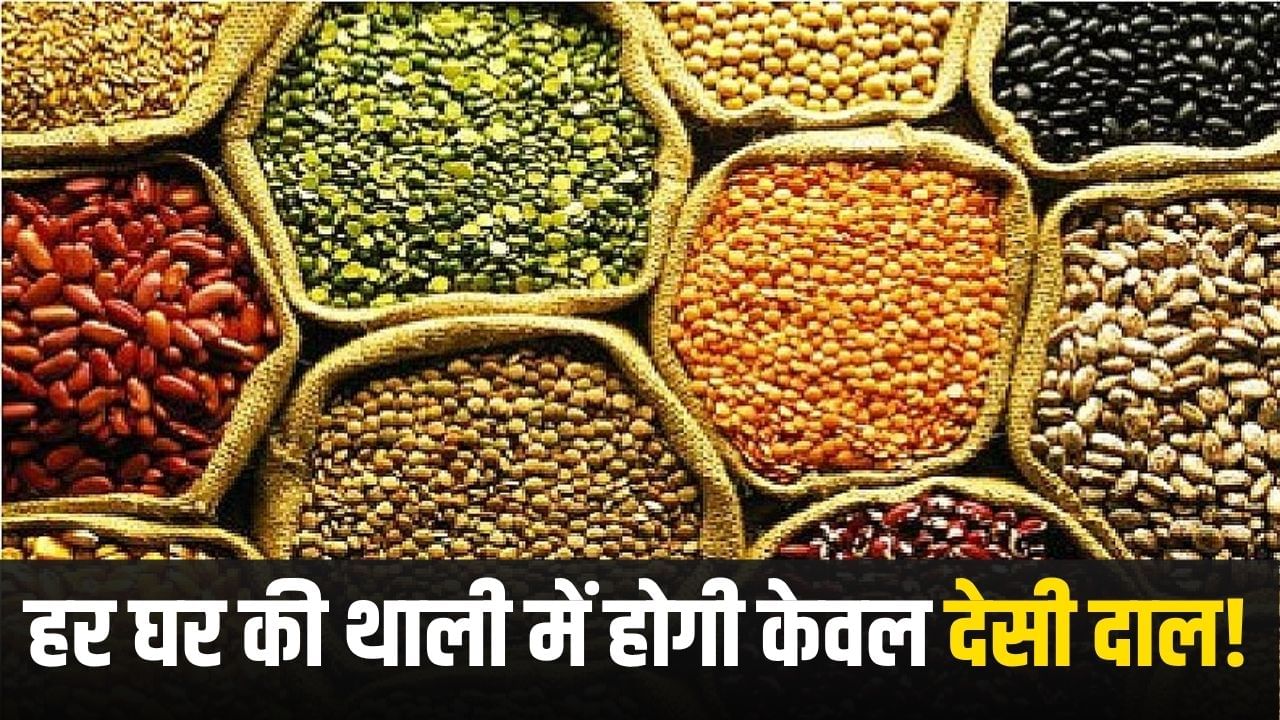The cabinet has approved a plan of 11,440 crores to make the country self -sufficient in pulses.
Now the day is not far when there will be only desi dal in the country’s plate. The central government has decided that the country has to be made completely self -sufficient in the case of pulses. For this purpose, the cabinet has approved a new scheme. The name of this scheme is ‘Mission for Self -reliance in Pulses’. 11,440 crore rupees will be spent on this and it will be run from 2025-26 to 2030-31. The government clearly says that by 2030, India has to be completely self -sufficient in pulses. That is, as much dal is consumed in the country, it should be grown here. Still India is the highest lentil country in the world, but about 15 to 20 percent of the pulses have to be imported as needed. This scheme is being started to eliminate this expenditure and dependence.
Target to increase the production of pulses by 350 lakh tonnes
Under this mission, a strong plan has been made to increase the cultivation of pulses. The government is saying that by 2030, pulses will be cultivated on 310 lakh hectares of land and production will be transported to 350 lakh tonnes. For this, farmers will be given seeds of good and strong varieties. About 126 lakh quintals of certified seeds and 88 lakh free seed kits will be given to farmers. These seeds will be especially sown on a land where pulses are not cultivated till now, such as paddy fallow land or any other vacant land. There will be special attention to the quality and availability of seeds. Where the seed is coming from, it will be monitored from a digital portal named Sathi. Center and state agencies will do the work of preparing seeds.
Government will buy full crop from farmers
Farmers are always afraid that if they sow any crop and prices fall in the market, then there will be a loss. But in this scheme, farmers have also been given a guarantee of price. Regarding tur (arhar), urad and lentils, the government has decided that the government will make 100 percent purchase of these three pulses for the next four years. That is, no matter how much the farmers do, the government agencies named NAFED and NCCF will buy the entire goods, that is also on the fixed minimum support price (MSP). But the purchase will be from the same farmers who will register in advance and compromise with the government agency. This will assure the farmers that their hard work will not go in vain. Also, the government will monitor the prices of pulses worldwide, so that farmers do not suffer losses in the domestic market.
Processing centers will be built in villages
There is a lot of damage even after harvesting. The quality of lentils also falls and money is also less. To stop this, the government will set up 1,000 processing units, where pulses will be cleaned, sorted and packing. For this, the government will provide help of up to Rs 25 lakh on every unit. These units will be installed in the villages, which will also increase employment at the local level and farmers will not have to go far to sell crops. The government’s effort is that pulses cultivation should not remain in only a few areas, but spread in different parts of the country, which reduces the effect of weather or any disaster.
Farmers will increase income
The effect of this mission will not be limited to pulses only. This will increase the income of farmers, because they will get the right price for the crop. Also, soil health will improve, because the crop of pulses gives nutrients to the land. Apart from this, when the pulses are ready in the country itself, there will be no need to order pulses from abroad, which will also save the country’s foreign currency. The government believes that this scheme will bring a big change in the cultivation of the country. This is a long distance thinking, which will benefit clearly in the coming years.
